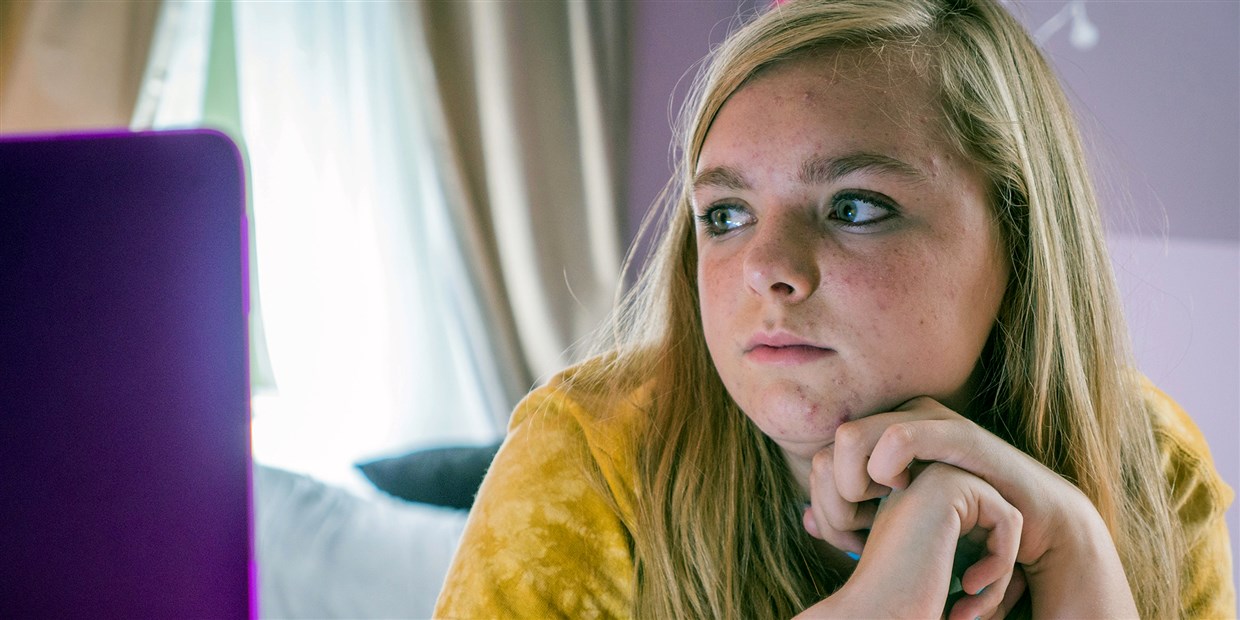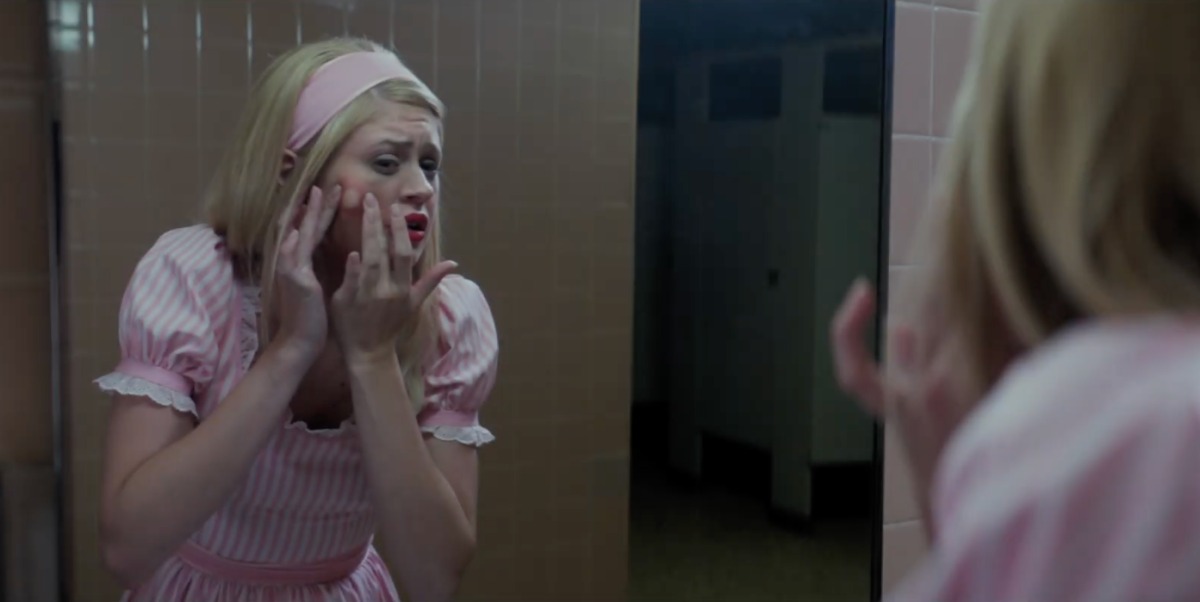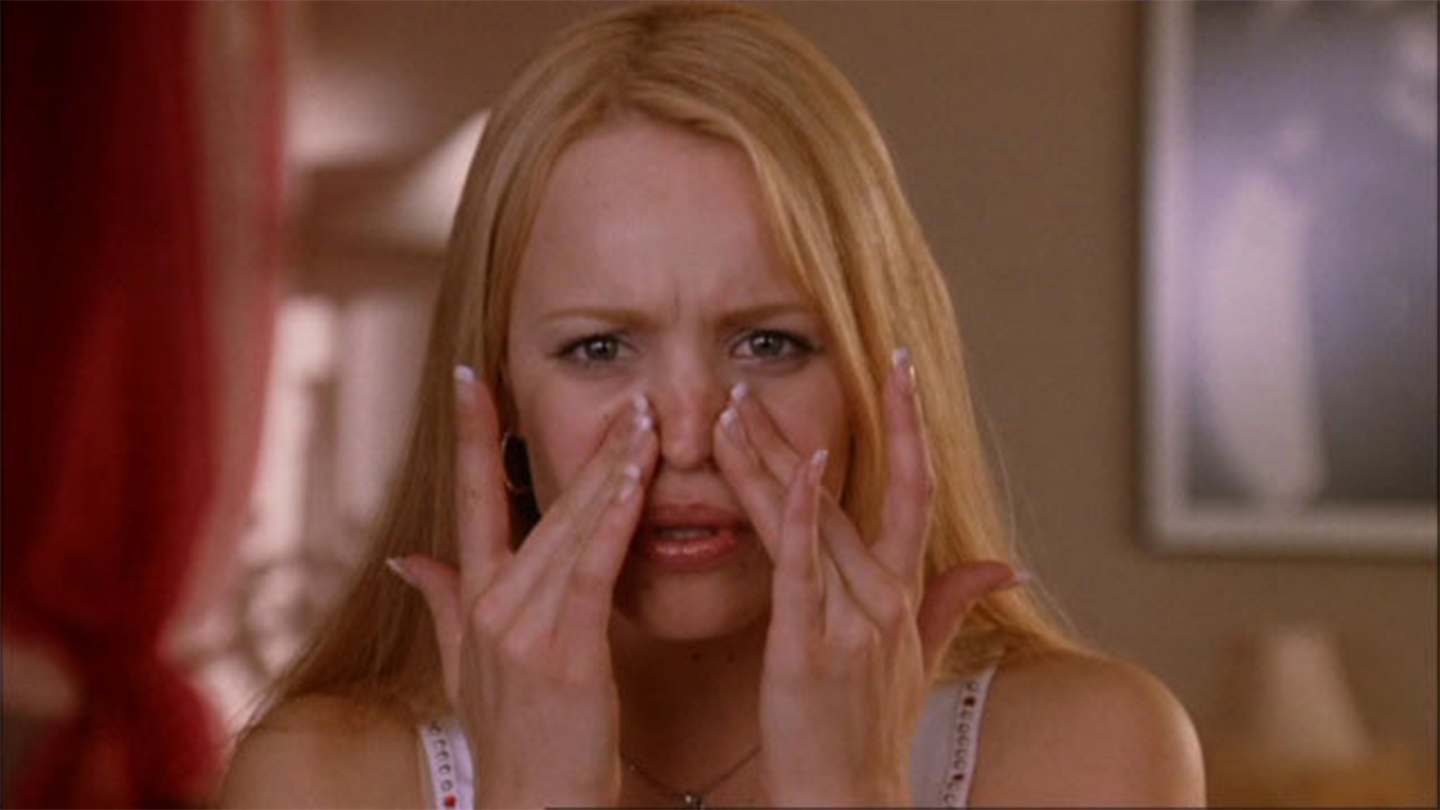When lockdown first came into force across most of the world in March (how was March two months ago?????? I’m fine), most of us immediately started looking for the silver lining. Well, we thought, at least we’ll probably save some money from not going to the pub all the time. And then we started buying pointless things online, constantly. Well, we thought, at least we don’t have to do the commute, working from home will be really relaxing. And then we started crawling the walls and despising our housemates. Well, we thought, at least we’ll have healthy, clear skin, a result of avoiding all the pollutants of everyday life. But Miss Rona twisted the knife even further, and now, for some reason, we’re all having acne flare ups, potentially for the first time ever.
In fact, in spite of the fact many people are embracing exercise, drinking less, avoiding pollution on the commute to and from work or school, and generally trying to be healthier, our skin is breaking out more often than ever before. Research has shown that in the UK, 29% have noted an increase in acne or blackheads in lockdown, with 14% of us reporting oilier skin. But why? Why?!! I’m fine.
Well, there are a few reasons. The first, obviously, is that we’re all incredibly stressed out by the pandemic gripping the world. In fact, 81% of people in the UK report dealing with “increased stress” in lockdown, even if our lives have ostensibly ‘slowed down’. Stress, it goes without saying, wreaks havoc on our immune systems and that can manifest itself, unfortunately, in some awful skin conditions and an increase in blemishes. Additionally, how we’re dealing with that increased stress is not helping matters. Turning to comfort food and touching our faces — you’re doing it, I guarantee, even without noticing — simply through boredom is all adding to the current mess that is your T Zone.

Lockdown has also changed the way we think about our skincare routine, and how much time we put into looking after our complexions. This, at first, might seem like a good thing, but changing a skincare regime — which apparently 67% of us have done in the past couple of months — can inflame the skin, leading to breakouts before it settles down and adjusts to new products and acid levels.
But, you might be thinking, I’m not out in the dirty world! I’m safe in my home! Well, sorry about it, but your home might be just as (okay, almost as) polluted as the tube to work. “We often think of damaging factors such as air pollution, toxins and extremes of temperature as being outdoor concerns,” says cosmetic doctor Dr Lauren Hamilton. “But our indoor environment can also present an issue. Exposure to these, along with the frequent or incorrect use of certain skincare products, can cause the skin barrier to be weakened. This leads to sensitised skin and can result in those symptoms of burning, stinging and tightness, plus signs such as redness, dryness and peeling that you might be experiencing.”
So what to do about it? The first thing you can do, as Baz Luhrmann is always telling us, is to wear sunscreen. Over half of people in the UK don’t (67% report not using sunscreen for their daily exercise). But there’s no point in piling acids, clay masks and retinoids onto your face if you’re not going to protect that newly peeled and tightened skin from harmful UV rays. “It’s incredibly important to apply a broad spectrum, high SPF, physical sunscreen every single day,” says Dr Hamilton. “When dealing with sensitised skin, the key ingredient to look for is zinc oxide, which can be tolerated by most skin types. For darker skin, zinc oxide can leave a white cast, so be sure to trial different formulations and assess how each blends with your skin tone.”
And apart from the sunscreen tip, the other most important thing is to relax and consider being a little bit kinder to yourself and your skin. While things might look bad, there’s a good change you’re emphasising minor breakouts and ailments because we’re all in a state of “hyperawareness” and giving in to a bit of Rona-related hypochondria. Instead of using that extra time to freak out, use it to embrace self-care instead. Do a face mask, you know. When would you have the time otherwise!
“People have found lockdown to be the perfect time to reflect and reconnect with their self-care regime”, says Dr Hamilton, clinician and founder of skin clinic Victor & Garth. “We finally have the time to overhaul our skincare routine to proactively rather than reactively care for ourselves. I have had a lot of enquiries from women in their late twenties and thirties who have been considering Botox and fillers for some time and I’ve recommended they use this time to first consider their skincare goals by starting with their skin.”

It also might be the perfect time to take a look at what products you’re actually using and strip back on anything that’s superfluous, expensive, and just plain not agreeing with you. “Lockdown is a great opportunity to try out new products, but by keeping your core routine minimal and gradually adding in products, you will be able to identify any ingredients that don’t agree with your skin and stop use before any long-term damage is caused,” advises Dr Hamilton. She recommends avoiding products with alcohol and fragrance, as well as those which list preservatives such as methylisothiazolinone as ingredients. Instead, opt for gentle, calming cleansers and moisturisers that contain soothing ingredients such as jojoba oil, shea butter, and squalane. Which are paraben-free and also easier to spell.
“Stay away from active ingredients and certainly don’t book any chemical peels until your skin is feeling back to normal and its barrier function has been repaired,“ she continues. “You may also want to consider your diet, as certain food types such as dairy can exacerbate or lead to certain skin conditions.”
What all the experts are saying, basically, is that while you might be panicking about your skin in lockdown it’s a situation that’s both fixable and not that big a deal. Be kind to yourself, you are — it’s important to remind yourself — living through unprecedented times. Take a deep breath, take a break from dissecting your selfies and try to put things in perspective. And trust me on the sunscreen.



